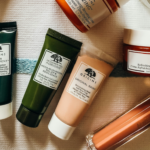Unscrupulous tech platforms will never be reformed if the open web doesn’t have the tools to compete.
Regulation can help. But, unless the free market rewards ethical behavior, we’re reduced to watching septuagenarian lawmakers play whack-a-mole against technologists who are infinitely smarter, faster, and better resourced. Change will be incremental, at best, while hundreds of worthy news and content organizations fall by the wayside.
The market must fix itself.
A lot of advertisers pay lip service to better ethics and transparency in advertising. They loathe the power of the big platforms, and many (some?) genuinely care about privacy, the mental health of teens, science, journalism, and other elements of the public good.
But, at the end of the day, money follows performance.
And at least right now, a small handful of companies have the playing field so severely tilted in their favor that nobody else can perform on par. Advertisers get more clicks for their dollar, while a few platforms and their shareholders get lavishly rich. Everyone else loses.
In gratuitously related news, we unveiled the name and branding of our new ad platform company this week. It’s called Rulo, a bastardization of the name of the Reuleaux triangle – the guitar-pick-shape formed at the center of three circles in a Venn diagram. In our version, the circles represent People, Publishers, and Advertisers. The guitar pick in the middle represents the harmony we can create between those stakeholder groups. I just made up the guitar + harmony bit right now, but it works.
The most mind-bending thing about the whole situation is that Rulo.com was available. If you know anything about the trade, finding a four-letter URL is about as likely as winning the Powerball jackpot. And maybe worth more money one day.
Until then, we’ll work to convince all sides of the digital ecosystem that “users” should be treated like human beings, not soulless 1s, 0s, cookies, and hashed emails meant to be targeted and manipulated with reckless abandon. We’ll work to convince advertisers that supporting responsible media companies and objective journalism isn’t just good, but good business. Because we’ll make it perform.
It will only succeed with scale. Meaning, lots of publishers and advertisers have to buy in. Way more people have to answer our polls. And, YOU, my friends, have to evangelize for us.
It’s not all or nothing, but it’s most or nothing.
Let’s do it.
Here’s what we’re seeing:
The overall well-being of Americans is back below pre-pandemic levels but the last couple weeks have shown signs of promise. In this week’s installment of “everything affects everything,” we launched a new “Well-Being Index” to measure and track how our collective fears, anxieties, and other negative emotions are impacting consumer behavior. No surprise, it is remarkably correlated with COVID surges and declines, while simultaneously aligned with our Economic Sentiment Index (and in some ways predictive of it). You can see below how things have trended – and how, hopefully, things are on the upswing. You can also go here to see an extensive study we presented on the new index last week. Get used to this appearing in the rotation. It’s important.

Supply chain concerns have many people starting their holiday shopping early. Amazon and other retailers are starting their Black Friday-like promotions way ahead of schedule this year – because they’re smart. U.S. shoppers are bracing for less-than-smooth holiday buying and it’s showing up all over our data. Seventy-one percent of U.S. adults expect delays and product scarcity to affect their shopping this year. As a result, people who are concerned about their holiday shopping are twice as likely to say they are shopping in stores right now, more than they typically would this time of the year. Don’t get left behind, dearest retail friends.

“Made in America” has seen a resurgence since the beginning of the pandemic, but it’s not as important to everyone. From the earliest days of lockdown, we saw significant spikes in consumers’ commitment to buying local, largely from a desire to support struggling independent businesses. The trend has sustained to this point, evidenced clearly in the desires of more Americans to buy domestic. The data skews heavily by age, if not so much by income, with Boomers placing nearly twice the importance on it, compared to Gen Z. The numbers also vary by product category. More important insights for the retailers among you.

Halloween should be much more normal this year, but a lot of people are still spooked. This time last year, almost 50% of U.S. parents said they would “definitely not” let their kids trick-or-treat on Halloween OR pass out candy. This year, just 20% say they won’t allow their kids to door-knock for candy and 25% say they won’t be doling it out. Our study shows big geographic differences, with parents in the U.S. West showing particularly high rates of concern. In sweeter news, mini-candy bars dominate as usual.

Holiday travel will obviously see a big uptick over last year – even among people who seldom travel for the holidays. To be clear, a lot of COVID-cautious people who typically travel for the holiday season are still erring on the stay-at-home side, but the numbers look a ton better than last year. Reticent travelers are more likely to be worried about getting other people sick than getting sick themselves. Meanwhile, a bunch of people who usually don’t travel for the holidays are sick enough of quarantine that they’re turning over a new traveling leaf this year.

Although, on that note, they may be more likely to drive than they were just a couple months ago – as air travel intent fell backwards a bit. One of the factors driving this trend is growing concern about unwieldy passengers and their acts of aggression on planes. Be kind, people. Seriously.

More studies this week:
- A lot of people – especially Gen Xers – thought the timing of Monday’s Facebook outage was suspicious;
- Over half of Americans still wear masks in places they’re not required;
- There’s a new cult growing on the internet – called Olaplex – which I’m being told is a trendy new hair care brand;
- Tea drinkers are fashion-following cat lovers and a bunch of other stuff too.
It always blows me away how many of you answer these questions:
- Do you tend to fully tie and untie your shoes with every wear?
- Have you ever ‘beta tested’ a piece of software (computer game, program, etc.) that was still in development?
- What do you usually do with the heel / end pieces of a bread loaf?
- Do you typically watch through the end credits of a movie, just in case there’s an extra scene?
- How much do you enjoy being on the receiving end of a surprise?
- How often do you typically listen to music that you’ve never heard before?
Answer Key: No and what kind of sick person does this?; Pretty much every day of my life; Feed the birds; Only Marvel movies; Hate it; Lots.
Hoping you’re well.
JD
Was this email forwarded to you? Sign up here








